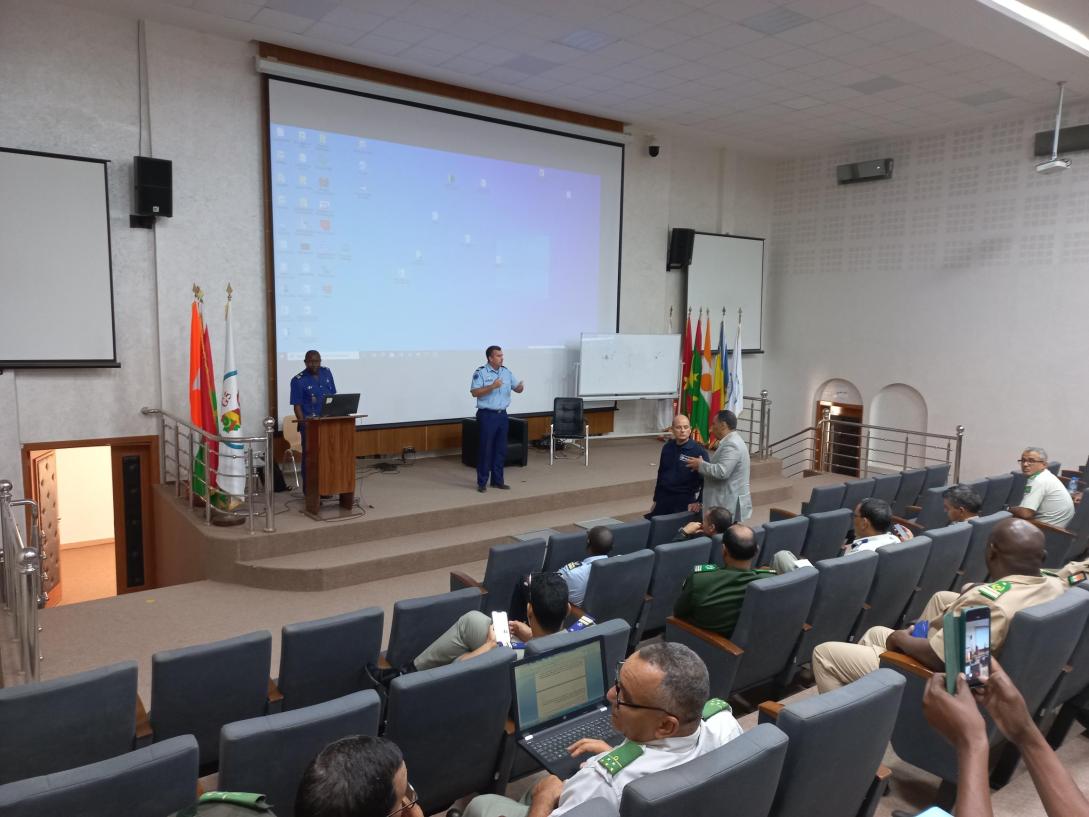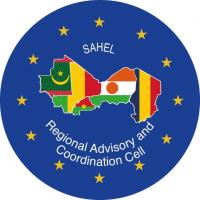Protection of civilians at the heart of RACC’s activities: third “Judicialisation of Military Operations in the Sahel” course organised in Nouakchott

The RACC has supported this high-level course for the 3rd consecutive year. Its concept was developed by the College. The course took place on 13-15 February in Nouakchott, Mauritania and it is a follow up of similar modules for Sahelian senior army officers.
The Burkinabe Lieutenant-colonel is a trainer, but also a participant in the course. He shares his experience as CONSPOL (police advisor) on operations conducted by the Joint Force of the G5 Sahel. In his lecture, he stresses how operating within the legal framework while respecting human rights contributes to the overall positive outcome of a military operation, and reconciliation with civil society.
Making reference to French history, Kouagri Natama explains that the deployment of security forces in military operations has a long tradition, and it aims to ensure the State authority over the fight against impunity, the respect of human rights, and the strengthening of confidence building between armed forces and the civil society of the countries they are mandated to protect.
The RACC’s support to the Rule of Law is formalised through the enhancement of the concept of judicialisation within the Joint Force of the G5 Sahel, ensuring that the military operations are conducted in the full respect of rule of law and human rights. The judicialisation remains a key instrument at regional and national level in the fight against impunity.
The Joint Force of the G5 Sahel carries out cross-border military operations to fight terrorism and cross-border organized crime (e.g., trafficking in arms, human beings, drugs).
The Nouakchott course included topics such as enhancement of criminal procedures and good Sahelian practices sharing.
“I have now finally understood why law enforcement officers are among us military guys on the battlefield. It not to check on us. It is to add value to our work in the field. To make sure one day we won’t be accountable for any crime, and most importantly, that no crime is committed in the execution of our function on the ground”. With these words, 52 years old Sahelian Lieutenant officer participating in the course (who wishes to stay anonymous), expressed in a nutshell why the Juridisation of Military Operations is key for the protection of civilian and, more broadly, to enhance security in the Sahel respecting rule of law and human rights.
This latest module of the Juridisation of military operation course, approved by the pedagogical direction of the G5 Sahel College de Defense, was designed by the RACC last June with the support of the Provost and Military Justice Expert of the EUCAP SAHEL MALI mission, and in coordination with the ACLEP project (Support for the Legal and Provost Components of the FC G5S) implemented by Expertise France and funded by the EU.






